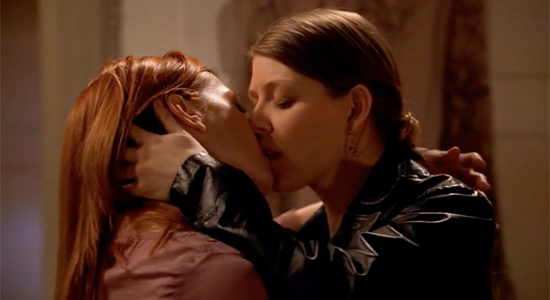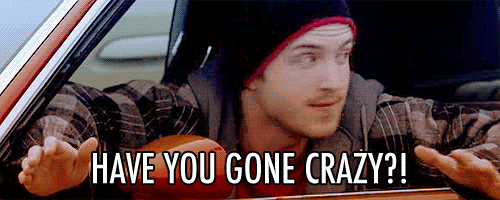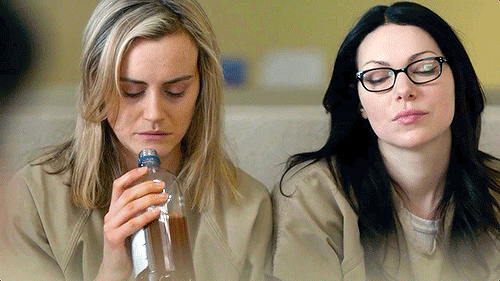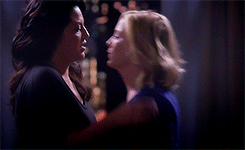Is TV’s Golden Age Killing Queer Stories?
By Matilda Douglas-Henry
Ever since Walter White graced us on the small screen in those ungraceful underpants, we’ve been revelling in television’s golden age. TV has gone from being the most inferior form of entertainment to possibly the best regarded. Shows like Game of Thrones and True Detective followed, only establishing further what everyone already knew – television was back in a big, big way.
The shows that I’ve listed above do not interest me at all. Much like their critically acclaimed predecessor, The Sopranos, I never *got* all these patriarchal think-pieces – and I know why. As a lesbian and raging feminist, the last thing I want is to engage with a dark, hyper-masculine rhetoric. I find that I simply do not care when a group of straight and privileged men are onscreen. Sure, these shows have female characters (sometimes even queer characters) – but their weaknesses are pervasive, and they are always outnumbered.
Imagine my elation, then, when Netflix became a more global phenomenon. It was clear from the outset that freeing creatives from the limits of broadcasters meant they would do whatever the fuck they wanted. Queer content became oft-synonymous with commercial and critical acclaim. A show like House of Cards subverts the straight male politician trope unlike any other, twisting Frank Underwood into an angry, semi- hot bisexual who seduces his male bodyguard. His wife – the vindictive yet undeniably alluring Claire – never confirms any sexual ambiguity, but I feel like she’s become a lesbian icon. And of course, there’s Jenji Kohan’s revolutionary Orange is the New Black – offering perhaps the most honest and interesting portrayal of race ever seen on television, where the straight girls are the only outcasts.
OITNB is the driving fuel to every lesbian’s fire – so much so that one of the best dreams I ever had was when I was sent to prison and Alex asked if she could be my wife.
There’s Broad City too – the refreshingly absurd Comedy Central series where Ilana Wexler’s bisexuality is never treated as alien – and the poetic melancholy of Jill Soloway’s Transparent, where a family each interact with their own manifestations of queerness while learning that their father is transgender.
Basically, TV has never been gayer. Hollywood executives are finally giving our community what we’ve always craved – a space to feel prolific and understood. A place to win Golden Globes.
Perhaps it was this line of thought that provoked me to play devil’s advocate. I suddenly started questioning the integrity of some of the shows that I loved so much. In this radical world of 2016 – where a pilot pitch doesn’t hold much weight if there isn’t at least one gay person – are queer characters, in fact, more tokenistic than ever? Are we being manipulated into fodder for boring straight people – mirroring the same drab executives who make money off our stories?
This is not always the case. Many of the shows listed above are created by LGBTQIA people, who are finally being given the opportunity to be true to their own experiences onscreen.
But – for the first time in a long time – I felt disheartened by queerness on television.
I remember being a grumpy, closeted little tween; subconsciously seeking out any pop culture that merely hinted at sexual ambiguity. It was a satisfactory process – hardly a marginalising one. I picked up glimmers of Willow’s impending lesbianism in Buffy the Vampire Slayer – totally enthralled by the way her newfound interest in witchcraft metaphorically drove her coming out story. Buffy was the first television show to air an onscreen kiss between two women, and it is executed perfectly.
It is the opposite of tokenistic; it is natural, it is off the cuff, and it caused my heart to explode.
There lies a similar level of nuance and complexity in David Fisher’s Six Feet Under story arc. Alan Ball – the series creator (who is also gay) – spends a lot of time delicately crafting the inner turmoil of being closeted. Of course, this was the gay trope to interrogate in television when the show began its first series in 2001. But Six Feet Under works very hard to honour David, and to dig deep into his battles between self-loathe and self-love. His transformation into a sexually liberated family man is so incredibly warming and real that any queer person would resonate with that sense of accomplishment we all feel when we fall in love with who we are.
But don’t get me wrong. It’s impossible to deny the joy I feel as a gay woman to browse Netflix and notice that any show worth watching is a bit gay too (sometimes even as gay as me). It warms the cockles of my heart. Yet it’s equally as important, I think, to remain aware of the fact that boring straight people can capitalise on how amazing we are.
And we don’t deserve that.




